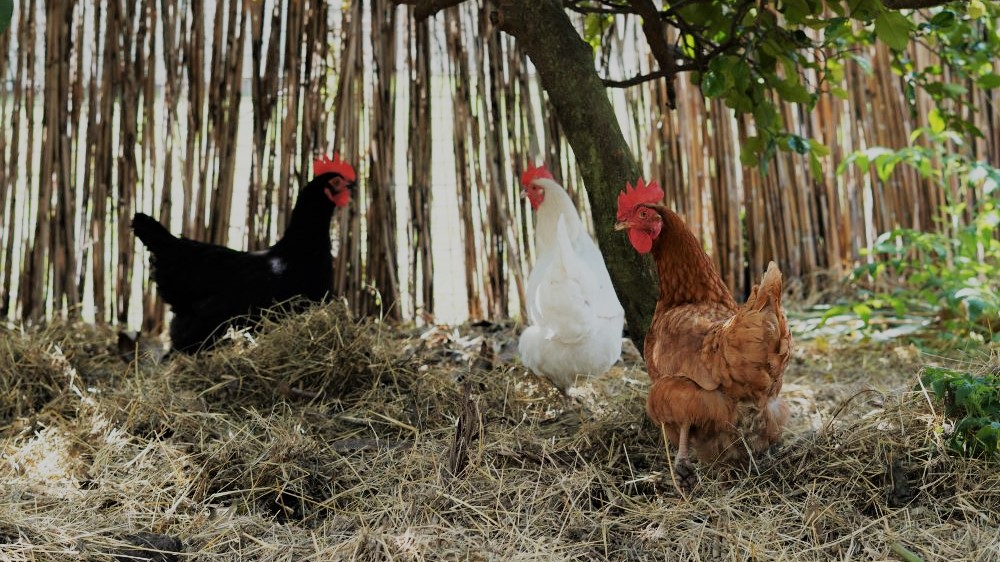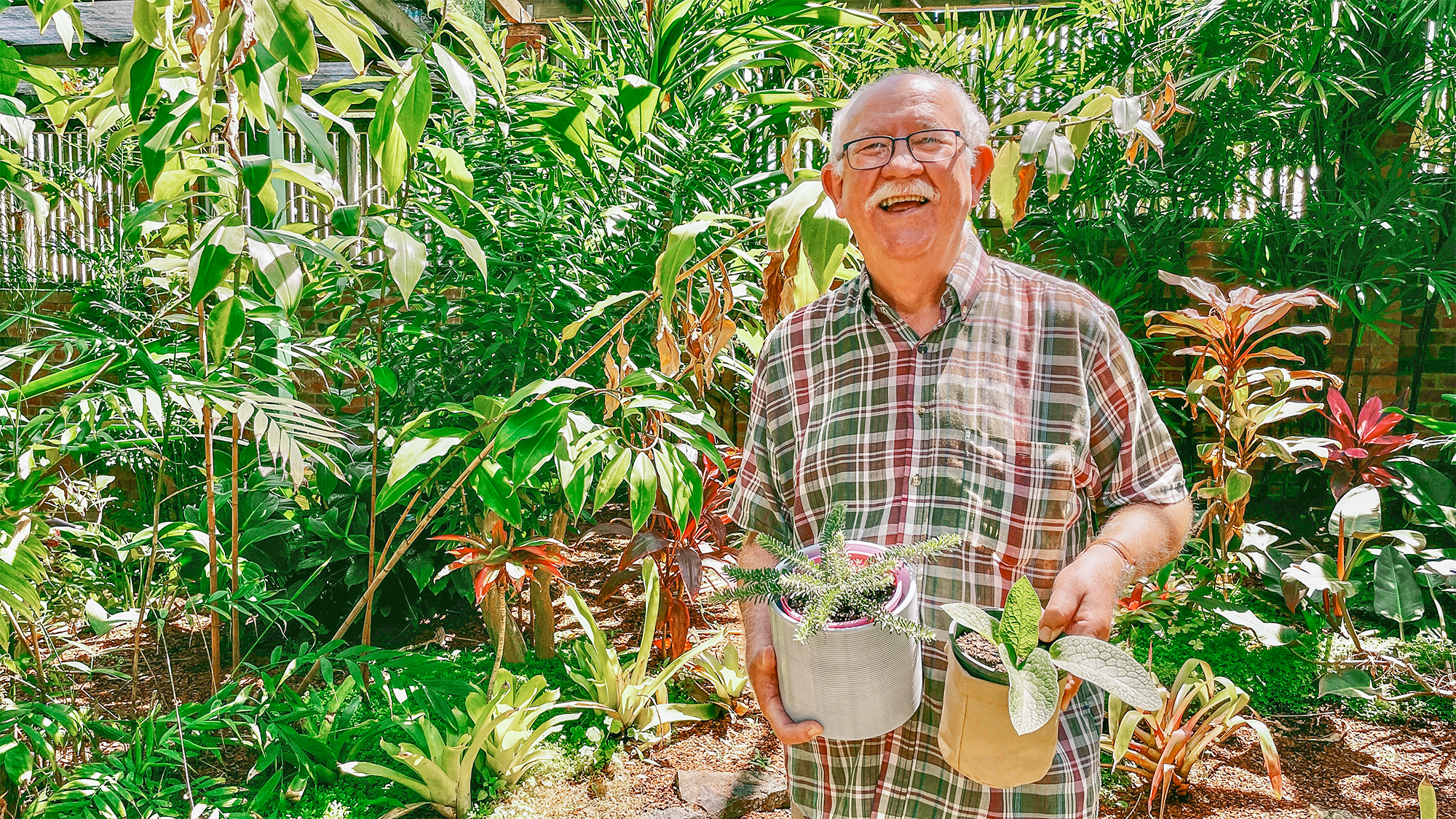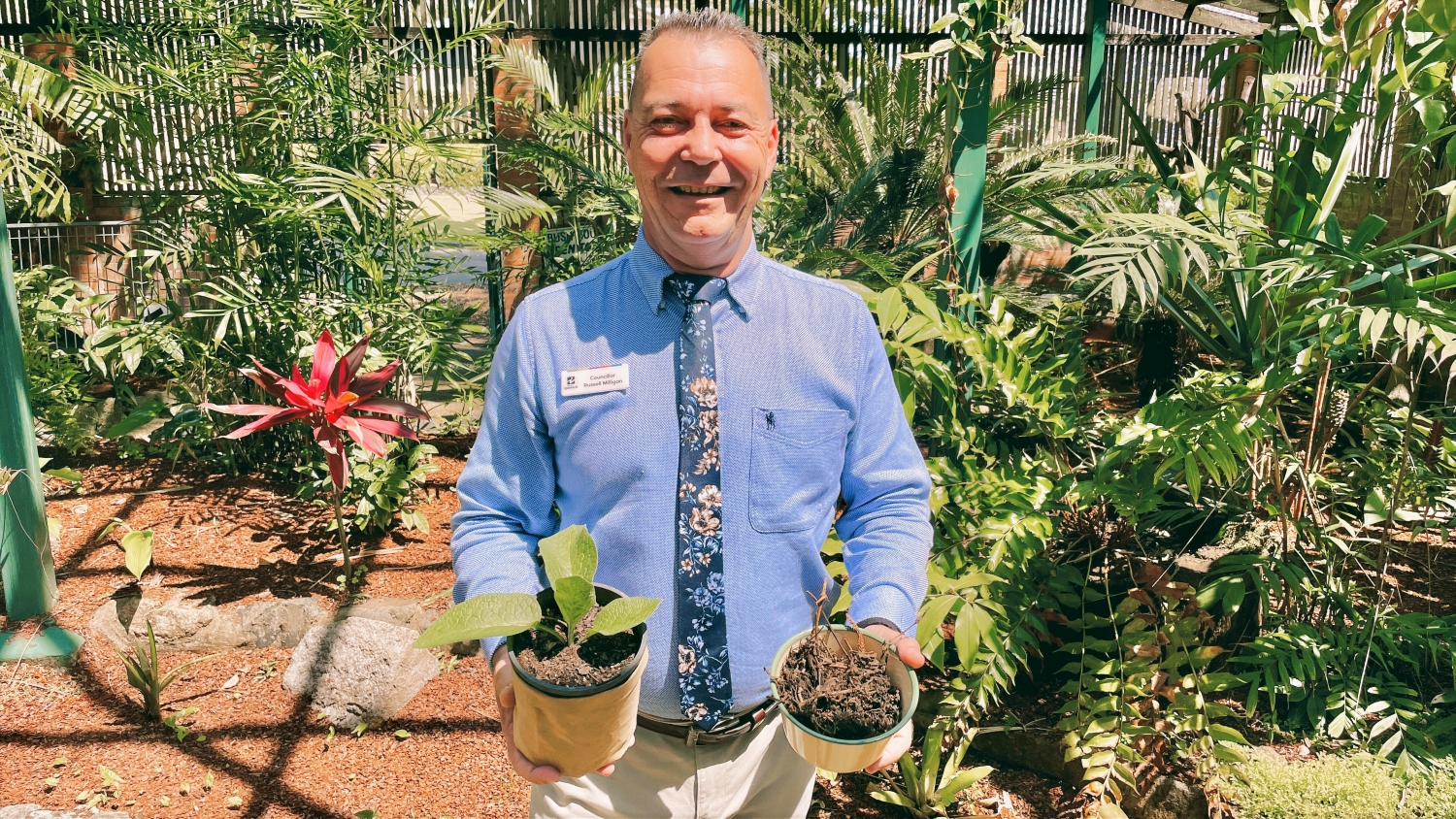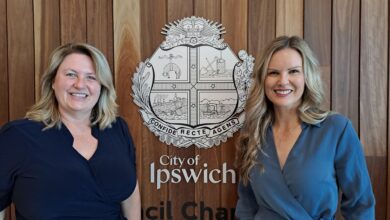For one day only, the city’s first-ever Sustainable Open Garden Tour will allow budding horticulturists to explore the suburban garden oasis of Ian Muil’s Silkstone property on 27 November.
Teaming up with his landscape designer Jonathan Gregory, the pair will take groups through the gardening wonderland and explain how they transformed Ian’s front and backyard into a productive haven for plants, animals and insects.
While he may have one of the most impressive private gardens in Ipswich, Ian has shared the surprisingly simple philosophy behind nurturing a sustainable garden in Ipswich
What is your favourite plant in your garden?
That’s a bit like asking which of my three children is my favourite! The aspect I enjoy most about the garden is experimenting with different plants, with each one having certain qualities that I find appealing and often a story to tell. But I am very thankful to have inherited a number of very old and established fruit trees from the previous owner including a Multi-Grafted Peach, Edible Fig and very large Jaboticaba, which is a tropical fruit tree from South America commonly called the Brazilian Chocolate Tree.
I think people may be interested to know the wide range of native and exotic plants in the garden all came from Ipswich nurseries, with the majority from Council’s Queens Park Nursery.
Which plants have taken the longest to take root in the garden?
The nature of the garden is that plants are allowed to find their particular niche, and if they are struggling I tend to move them to different locations or replace them with something more appropriate. In Ipswich, the challenge is often too much sun in summer. So, I am in the process of establishing an informal tree canopy that provides western shade and maintains higher moisture levels in the soil.
These trees include a Kurrajong, Peanut Tree and Plunkett Mallee, which is the floral emblem of Ipswich. This canopy allows me to grow Hippeastrums, Bromeliads and Cat’s Whiskers that are protected from the direct heat underneath. The native Finger Lime is another specimen that is notoriously slow growing but provides a great nesting habitat for finches and wrens due to its thorns and very interesting fruit.
Which plants are crucial in attracting animals to your garden?
The key is to provide a wide variety of food sources and shelter. This can include plants that flower at different times of the year, particularly in winter when options are often limited, and densely foliaged or spiky bushes like the Native Currant (Carissa ovata) and Bursaria Spinosa that provide great cover for small birds. Native grasses are also good for small birds, while Wattles, Bottlebrush and Myrtle are great for native bees and other insects.

Most people are not fans of insects. How do they play an important part in a sustainable garden?
Insects are critical as not only do they pollinate flowers, but they can also control other insects like aphids that may be damaging to plants and help break down the organic green waste. I have three native beehives, which help improve my citrus and stone fruit crop, and I do not use any non-organic chemicals in the garden.
With the greater range of plants I have also noticed different types of butterflies and beetles visiting the garden, which in turn increases the amount of birds, lizards and frogs. This increased biodiversity is always a positive indicator of a healthy garden.
I have also installed a homemade ‘bug hotel’ some years ago, and I proudly show our friends how many of the rooms are booked by counting the ‘do not disturb’ closures of the entrances.
“Sustainable Ipswich Month is a way for our community to learn from each other as we progress towards a greener future.
The variety of activities give residents many ways to kick-start their journey or be inspired by new and innovative ideas to reduce waste, reuse materials and help the environment.
This month of sustainable events and workshops is one of the ways we can learn simple and easy ways to make change and promote sustainable living in everyday life, all year round.”
– Environment and Sustainability Chair Councillor Russell Milligan
What is your top tip for fellow Ipswich residents who want to build and nurture their own sustainable garden?
The most critical thing in the garden is to improve the health of your soil with lots of organic matter and compost. This acts to break up the clay and improve drainage while retaining moisture, making more nutrients available for the plants.
I have chickens which also do a lot of this for me, and I am very committed to chipping all my green waste and spreading it back over the garden beds as mulch. A good layer of coarse mulch up to 100mm deep definitely helps reduce watering requirements and keeps weeds down.
Lastly, why was it so important to work with a landscape designer on this garden project?
I had got to the stage where I had run out of ideas and knowledge. I wanted fresh ideas on ‘sustainable’ and suitable plants to bring in, with some suggestions for a re-landscaping towards the back of the property. When I attended a council event at Queens Park, I was impressed by the guest speaker, Jonathan Gregory, who spoke of what he was doing to his Quarry Street property.
I realised, “That’s what I need to move ahead with my property”. Working with Jonathan was a very rewarding process as his design background and passion for local plants helped me see the garden layout and detail from a different perspective.
We were able to improve the experience of the landscape by grouping similar plants to increase their visual impact, raising tree canopies to create views and reduce congestion, defining entry points with feature planting and providing informal seating opportunities, while maintaining a sense of individuality and ownership.
It’s not a traditional ‘show garden’, but it is what I set out to create – a sustainable, low-maintenance garden utilising a select range of natives and exotics that has created a refuge for wildlife. In fact, we have many species of birds that we just did not see when we moved in 10 years ago.
Sustainable Open Garden Tour – suburban garden in Silkstone
Saturday 27 November
This event is sold out. However, to register for Sustainable Ipswich Month events, visit Ipswich.qld.gov.au/sustainability
Sustainable Ipswich Month is delivered through the support of the following partners:
Ipswich Libraries, Council’s Habitat Gardens Program, Ipswich Waste Services, Ipswich Nurseries, Council’s Active Kids Program, and Garage Sale Trail.
Read also:
>>> Council-first interactive program revealed for Sustainable Ipswich Month



